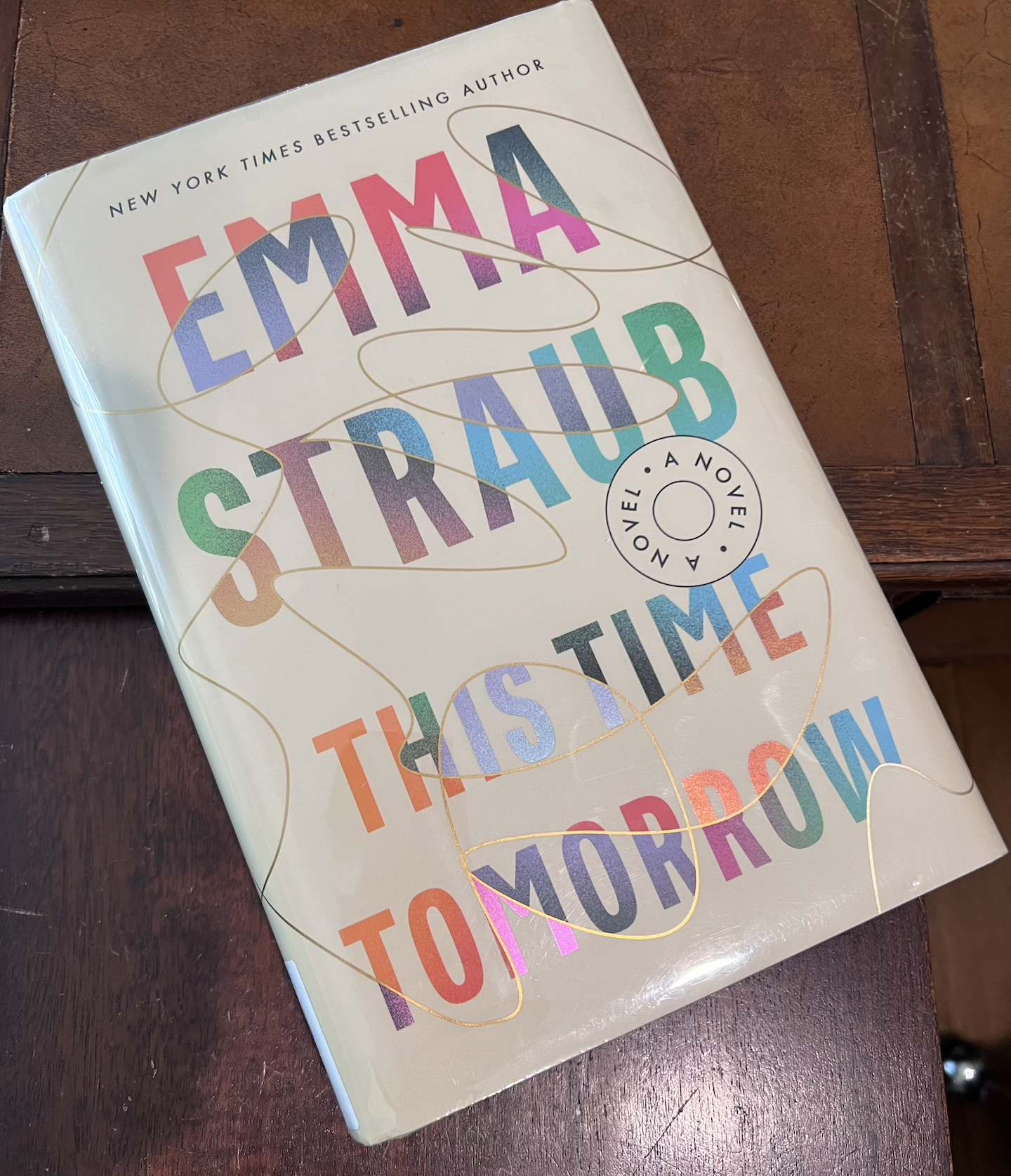This Time Tomorrow by Emma Straub (Riverhead Books)
This month’s book presents us with a character, Alice, about to turn 40. She is a modern New Yorker, single and independent. She has good friends, a steady job, and an apartment within walking distance to her job. Her life is clearly the result of the decisions she has made. She is comfortable. She dines at her favorite restaurants, doesn’t go running because she doesn’t like to. She breaks up with her long-term boyfriend, because, well, just because. She has no responsibilities and no strings attached, except for the situation with her dad, who is lying in a hospital, dying. She visits him every day, weighed down by his impending death.
When we meet Alice she feels stuck, because she is stuck. She is existing in a stagnant pool of mediocrity. She is aware of this, but she doesn’t have the wherewithal to push herself out of it. Instead of focusing on doing something worthwhile with her life, she decides that she is going to put all of her energies into forestalling her dad’s pending death. The relationship between father, Leonard, and daughter, Alice, is the emotional pivot point upon which this book revolves.
Alice has grown up in the shadow of her father’s fame; he is the bestselling author of time-travel books. Raised in a sea of this trope, she is taught that time-travel is pure fiction. On her 40th birthday, she tumbles into the discovery that it is real, and suddenly she gains a sense of purpose and agency.

“It wasn’t just her father that Alice was visiting, it was herself, the two of them together.”
The reader, previously lulled into the idea that this is going to be a cozy, gentle story about an average woman taking care of her dying dad, is is now thrust into a whirlwind of alternative realities, and is forced to sort out the tangle of time streams.
So we follow along as Alice teeter-totters between her 16-year-old past self and her 40-year-old present self, which is constantly changing because of the decisions she makes while in her 16-year-old self.
You have to read the novel in one go. If you put it down for any stretch of time, it will be hard to keep up with her time streams. Time travel stories are always problematic because of the inevitable paradoxes that are difficult to resolve. This novel tries to sidestep the thorniest issues, leaving the reader questioning the plausibility of the tale and the reliability of the narrator.
Through it all, Alice remains fundamentally, her same stuck, 40-year-old self. We see no growth in 16-year-old Alice, who is in actuality a 40-year-old Alice, who displays no growth either. However, the mutual love shown between father and daughter is heartwarming and carries us along.